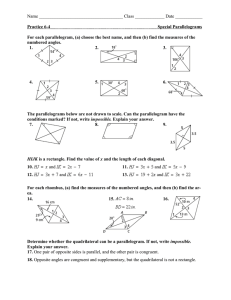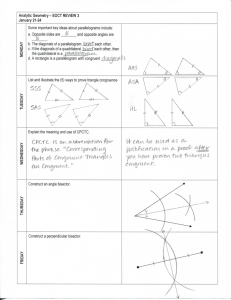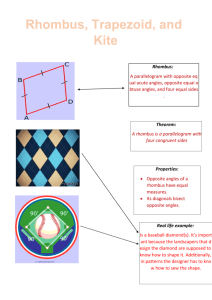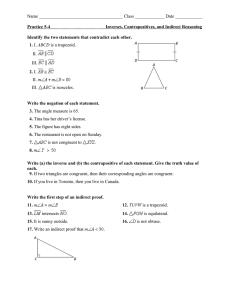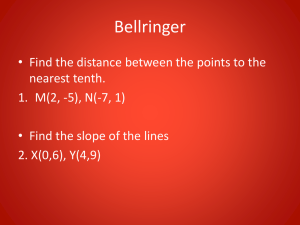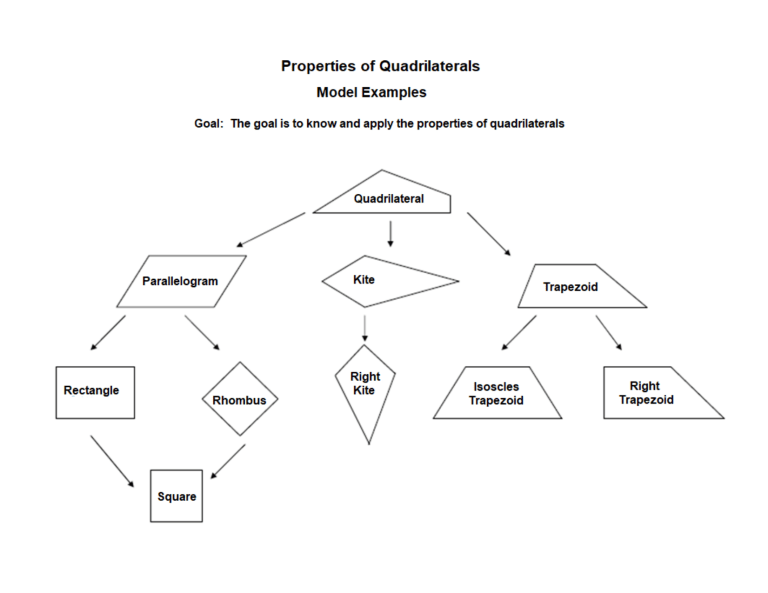
Quadrilateral 1. A polygon with four sides. 1. 2. 3. 4. 5. 6. Parallelogram Both pairs of opposite sides are parallel. Both pairs of opposite sides are congruent. One pair of opposite sides are parallel and congruent. Diagonals bisect each other. Both pairs of opposite angles are congruent. Consecutive angles are supplementary. Rectangle 1. All the properties of a parallelogram. 2. Has right angles. 3. Diagonals are congruent. 1. 2. 3. 4. Kite 1. Both pairs of consecutive sides are congruent but opposite sides are not congruent.. 2. Diagonals are perpendicular. 3. Exactly one pair of opposite angles is congruent. 4. Exactly one diagonal bisects the other. Rhombus All the properties of a parallelogram. All sides are congruent. Diagonals are perpendicular. Diagonals bisect the opposite angles. Square 1. All the properties of a parallelogram. 2. All the properties of a rectangle. 3. All the properties of a rhombus. Tip 1: Committing these quadrilaterals properties to memory will make it much easier for you to be able to apply them. The practice problems give you an opportunity to test your knowledge of the properties. Trapezoid 1. Exactly one pair of opposite sides are parallel. 2. Exactly two pairs of consecutive angles are supplementary. 3. Length of midsegment is half the length of the two bases. ½ (base1 + base2) Right Kite 1. All the properties of a kite. 2. Has a right angle Isosceles Trapezoid 1. All the properties of a trapezoid. 2. Non-parallel sides are congruent. 3. Diagonals are congruent. 4. Base angles are congruent. Right Trapezoid 1. All the properties of a trapezoid. 2. Has a right angle Tip 2: If you are faced with a sometimes, always, never question, use the chart as follows: • If you move down the chart, then use SOMETIMES. • If you move up the chart, then use ALWAYS. • If you move across the chart, then use NEVER. EXAMPLE: SOMETIMES, ALWAYS, NEVER • A square is a square? ALWAYS because you moved you moved up the chart. • A rectangle is a trapezoid? NEVER because you moved right across the chart. • A quadrilateral is a kite? SOMETIMES because you moved down the chart.
